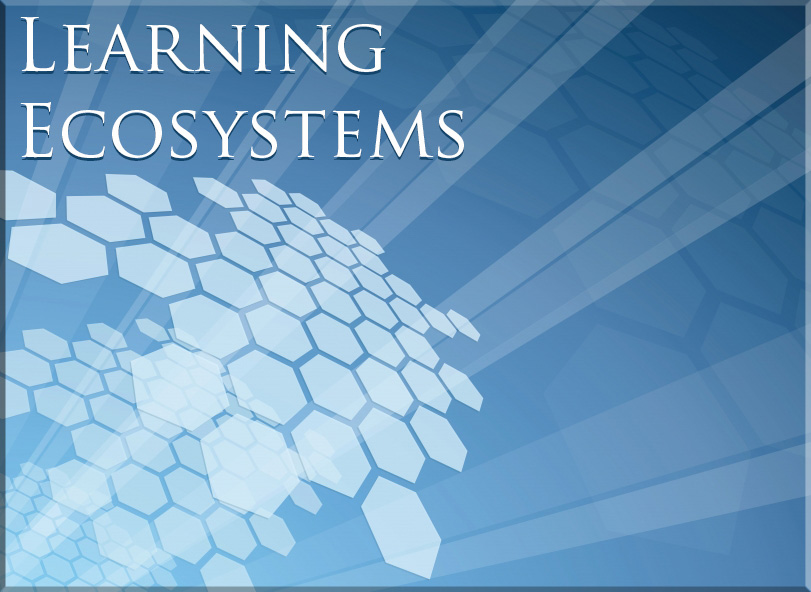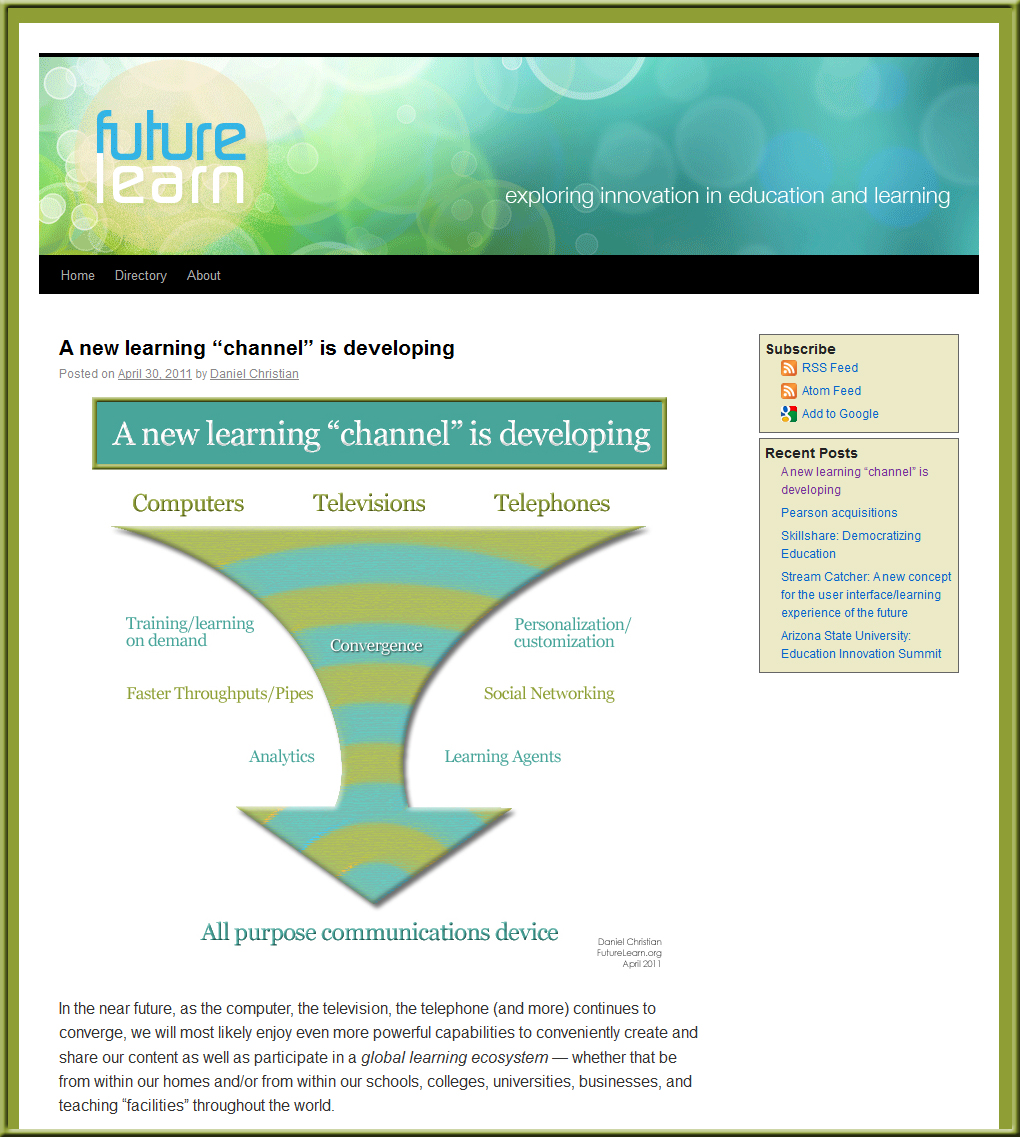George Siemens Gets Connected — from chronicle.com by Steve Kolowich
Excerpts (emphasis DSC):
He earned the most of his college credits at the University of Manitoba but also took courses from Briercrest College and Seminary, a Christian institution in Saskatchewan.
Through Briercrest, Mr. Siemens had his first experience with distance education: He took a Greek-language course that involved studying pronunciation from cassette tapes that came in the mail.
…
When he was 28, he went on a religious retreat. “If you’re always moving away from something, you’ll be lost,” Mr. Siemens remembers a priest telling him. “Always be moving toward something.”
…
The idea behind the first MOOC was not to make credentialing more efficient, says Mr. Siemens. It was to make online instruction dovetail with the way people actually learn and solve problems in the modern world. He and his colleagues wanted “to give learners the competence to interact with messy, ambiguous contexts,” he wrote, “and to collaboratively make sense of that space.”
…
Education, then, is “a connection-forming process,” in which “we augment our capacity to know more” by adding nodes to our personal networks and learning how to use them properly.
From DSC:
This last sentence speaks to a significant piece of why I titled the name of this blog Learning Ecosystems. Such nodes can be people — such as parents, pastors, teachers, professors, coaches, mentors, authors, and others — as well as tools, technologies, schools, experiences, courses, etc. These ecosystems are fluid and different for each of us.

I’m also very glad to see George continuing to lead, to innovate, to experiment and for others to realize the value in supporting/encouraging those efforts. He is out to create the future.
Speaking of being out to create the future, I got involved with one of the experiments he led a while back called future learn: exploring innovation in education and learning. Though that experiment was later abandoned, it helped me crystallize a vision:

That vision has turned into:
![The Living [Class] Room -- by Daniel Christian -- July 2012 -- a second device used in conjunction with a Smart/Connected TV](http://danielschristian.com/learning-ecosystems/wp-content/uploads/2012/07/The-Living-Class-Room-Daniel-S-Christian-July-2012.jpg)
So thanks George, for your willingness to encourage experimentation within higher education. Your efforts impacted me.
Finally, I’m glad to see the LORD continuing to bless you George and to work through you…to change the world.








